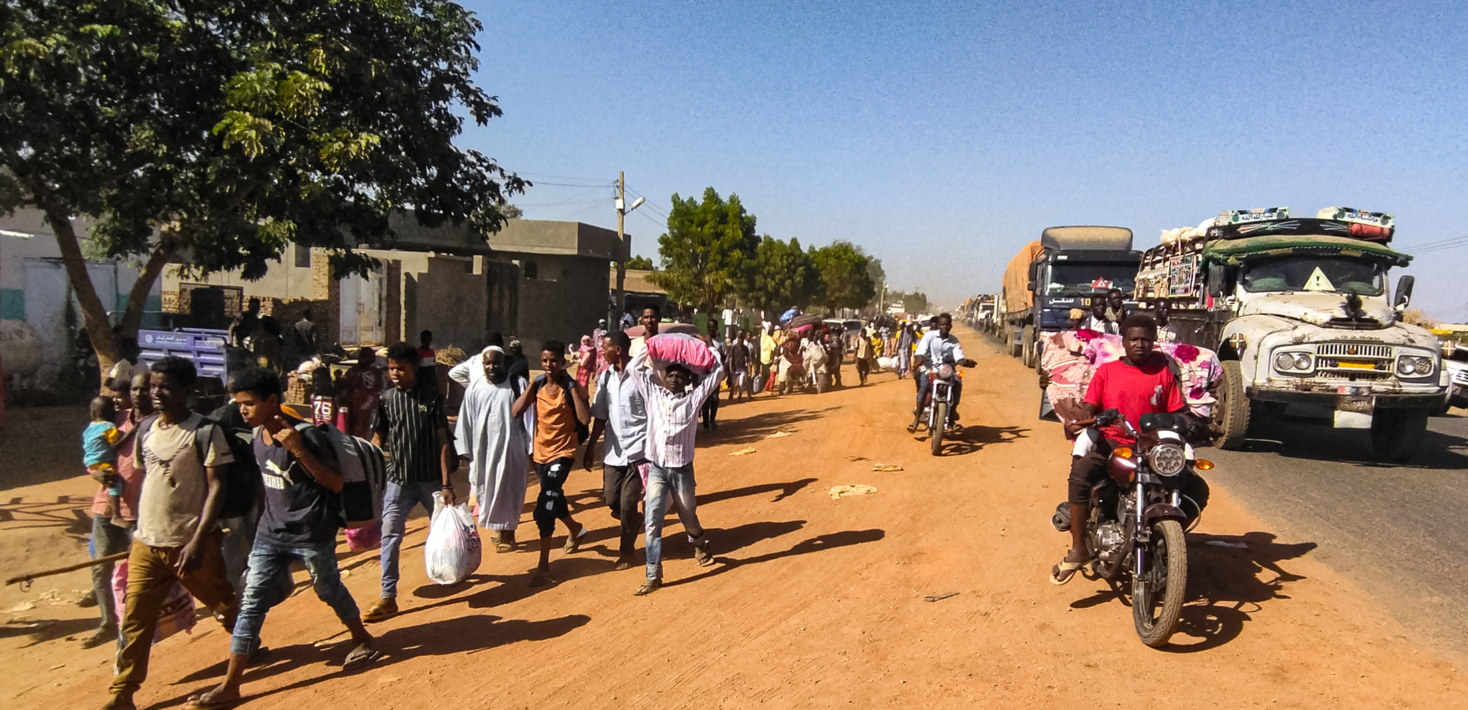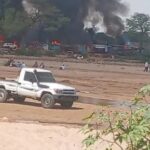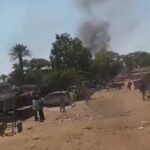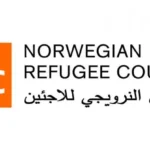Report: Darfur Follow-ups
As the war in Sudan enters its ninth month, and with the Rapid Support Forces controlling most areas of Al-Jazira State, including its capital, Wad Madani, the situation on the ground is witnessing rapid changes. Fog prevails and there is a difference in positions about getting out of this crisis that led to the death of more than 12 people. One thousand people and the displacement of about 8 million so far.
In the complete absence of any clear information or data from the army, whose leaders are in the city of Port Sudan, a thousand kilometers away from Khartoum, the Rapid Support Forces confirmed their control over all the main cities on the road between the capital and the end of Al-Jazira State and southern Sennar State, more than 300 kilometers away.
The arrival of the Rapid Support Forces to Wad Madani in the state of Al-Jazira in the center of the country and control of its main keys is a new defeat for the army, in addition to a series of other defeats that it suffered during the last period in Khartoum, Nyala, Zalingei, El Geneina, and several places in El Fasher and South Kordofan, which opens the way To reach a greater military reach and threaten the presence of the army leadership, the government, and senior officials in eastern Sudan.
The statement issued by the army on Tuesday reflected the extent of the confusion it was experiencing, as it said that it would conduct an investigation into the withdrawal of its forces from the island’s capital.
The Rapid Support Forces confirmed on Tuesday that they had strengthened their presence in the state of Al-Jazira, and took control of the headquarters of the state government secretariat, the headquarters of the 1st Infantry Division, and the headquarters of the army command there. They extended their influence over the city of Wad Madani, placed strongholds at its entrances, and spread in the neighborhoods of the first section leading to the state of Sennar, which is adjacent to the island in Southeast of the country.
Eastern Sudan is the turning point
The army’s clear influence has so far been limited to eastern Sudan, and this region overlooking the Red Sea will not be immune from war for a long time in light of the new expansion in Al-Jazira State, which is located halfway between Khartoum and the east, and controlling it represents strategic importance, and makes the army commander, Lieutenant-General Abdel Fattah Al-Burhan is in a critical situation, as the advance on his forces in several areas empties his speech of its content and his ability to defeat the Rapid Support.
Observers say that the concentration in Al-Jazira State came quickly and through less expensive military efforts, which means that the Rapid Support Forces were carefully aware of the state’s map and did not find sufficient resistance from the army to confront it. Large numbers of its members fled the battlefields, and hundreds of thousands did not side. From the citizens to the army, they did not make an effort to defend it.
Observers add that the next stage will be militarily easier for the Rapid Support Forces with their continued victories, and the appearance of what looks like a collapse in the army units, and many of its elements appeared to have surrendered and do not have the tools to defend themselves, while the Rapid Support Command acts prudently when entering each state to reassure its residents and provide security and stability. And refute accusations against it of committing violations or implementing a hidden agenda.
Sudanese political analyst Suleiman Sari stated that what happened in Al-Jazira State was like “a handover and transfer of positions between the Rapid Support Forces and the army, which left its positions after relying on what he called volunteers to lead the fight instead of its members, and this appeared through the withdrawal operations that were evidence of abandonment.” “All the army’s weapons and equipment are in Gezira State, which indicates the existence of unknown understandings.”
Most of the Sudanese army soldiers and officers of the First Division withdrew from the island and headed towards Sennar State, and platforms affiliated with the Rapid Support Forces published video clips of large numbers of their soldiers roaming the streets of Wad Madani on board military vehicles.
Sari added that the Rapid Support’s control of the island paves the way for progress towards many areas in the east of the country, and what happened indicates the existence of deep disagreements between army leaders who support entering into negotiations to end the war and move towards peace, and others who want it to continue, and it is not unlikely that the proof is the intention of Behind handing over Al Jazeera was sending an angry signal to his aides stating that the Rapid Support Forces were close to them if they did not respond to negotiation and peace.
Suleiman Sirri pointed out that there is a conviction that the Islamists and the remnants of the former regime have broad influence in the state apparatus, which paves the way for the process of adapting the war according to their goals, thus undermining the values of the Sudanese revolution. The features of this determinant were evident in the continuous attacks by the military intelligence services on civilians instead of fighting the Rapid Support Forces. Because the goal is to plunge the country into complete chaos.
He stressed the importance of having understandings between the Rapid Support Forces and the civil administrations in Al-Jazira State and other areas that were controlled.
A rapid support statement called on the residents of Al-Jazeera State to immediately begin forming civil committees to administer their state, and urged all those displaced from Al-Jazeera to return, saying, “We will work to maintain their protection in a way that guarantees their stability and secure the access of humanitarian aid by facilitating the entry of organizations working in the humanitarian field.”
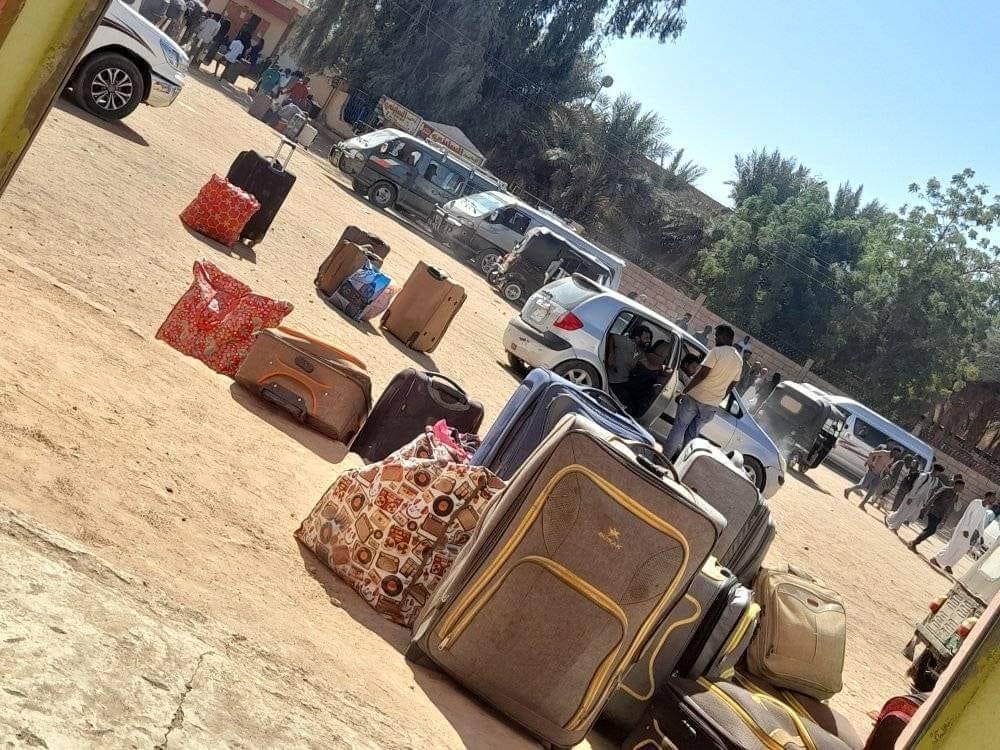
Damazin receives waves of displacement and its residents cross the border to the south
Activists and leaders in civil society in the Blue Nile region painted a bleak picture of the humanitarian situation in the state, which threatens a crushing famine as a result of the complications of the harvest season and a scarcity of necessary goods after the closure of a large number of stores, and large numbers of them leaving the state for fear of the extension of the armed conflict to the state, with waves of High displacement from Gezira state.
They described the humanitarian conditions in the Blue Nile as dangerous and threatening a possible famine at the beginning of the year as a result of the agricultural season not continuing as scheduled and complications facing the harvest season, most notably the lack of funding.
One of the activists said that the events that took place in the state of Al-Jazira cast a shadow over the state, as citizens were afflicted with a state of panic and fear, and large numbers of them rushed in reverse migration towards the south, crossing the border for fear of it being closed early in the event of events, while a large number of merchants closed their shops. Because of these fears, they left the state for other safe states, noting that citizens face a severe scarcity of necessary goods with the partial closure of markets.
On Wednesday, a community activist from Al-Damazin reported the influx of high waves of displacement to Al-Jazira State, in light of the absence of humanitarian organizations due to the suspension of their operations, the evacuation of their international employees, and the dismissal of Sudanese, with a clear government disavowal, indicating that the government has not yet issued a decision to put in place measures to receive the displaced. He said that community organizations Al-Madani and some grassroots youth initiatives are trying to confront this crisis despite their limited capabilities, and they have placed the displaced in schools and sports clubs while providing some services.
On the same level, another civil society activist said that the state is on full alert and has intense security preparedness in the armed forces and the rest of the regular forces, following the governor’s decision to declare a night curfew. He revealed that the security and intelligence services in the state launched a massive arrest campaign among street vendors and fresh food vendors, merely on suspicion of them, but he pointed out that they were arrests on an ethnic basis, similar to what happened in the Gezira state.
Sporadic clashes in Al-Obeid
On Tuesday afternoon, the city of Al-Obeid witnessed intermittent clashes in the area of Al-Sharif and Petroleum neighborhoods and Bara Street, and a media source reported that the Rapid Support Forces were still besieging the city. The intermittent clashes caused the closure of shops and then the situation returned to normal. The source added that the Rapid Support Forces It is still present in District 13, Al-Sharif and Petroleum, and when the motors are moved, snipers fire shots, because they are on the roofs of tall buildings in the city.
Tension in Kosti
The city of Kosti in the White Nile State witnessed a displacement of citizens out of the city for fear of a repetition of what happened recently in Madani, after rumors spread of the arrival of the Rapid Support Forces to the areas of Al-Dawim and Al-Qatina.
A source in White Nile State said that there is talk about the arrival of the Rapid Support Forces to the Qatina area, which sparked terror among citizens in the cities of Rabak and Kosti, which led to many citizens fleeing to the states and an increase in travel ticket prices. He added: There is talk about the possibility of their arrival. To Kosti, which led to citizens fleeing outside the White Nile and some to the regions.
He continued, “There is a state of panic and fear among citizens,” adding that there is a crazy rise in prices after the markets witnessed an almost complete closure.
West of the “Jazeera” and battles in Al-Qatina
The Rapid Support Forces continued their expansion and deployment in the west of the state by invading a number of cities and villages, led by the cities of Al-Hasahisa and Fadasi, after they had entered and invaded cities and villages in the eastern side, while several regions and cities in the various states of Sudan live in a state of anxiety, fear and anticipation. Following widespread rumors about the advance of the Rapid Support Forces towards towns in the states of White Nile, Sinnar, and Butana.
Yesterday, Wednesday, the “Rapid Support” forces invaded the city of Al-Hasahissa on the west bank of the Blue Nile and seized the local police headquarters. According to the city’s resistance committees, they looted homes and some shops, after they entered the city without any clashes after the army and police forces withdrew from it, and penetrated into the neighborhood. Maiqoma and some peripheral neighborhoods, in addition to entering the headquarters of the cotton gins affiliated with the Al-Jazeera Project, amidst “Rapid Support” soldiers firing bullets in celebration and terrorizing the citizens inside the neighborhoods.
Fears due to leaks about the army’s withdrawal from Sennar
A state of fear and panic prevails among the citizens in the city of Sennar, with operations to leave the city after news leaked about the army’s withdrawal from the Sennar garrison. A displaced person said that the city of Sennar is dominated by a state of mass flight of citizens after receiving news of the Rapid Support Forces approaching the city and news of a withdrawal being leaked. The army from Sennar garrison to Sinja.
He described the conditions in Sennar as difficult and tense amid the complete absence of security services in the city, and said that there are thousands of displaced people who fled from Madani to Sennar who are living in difficult conditions, crowded in schools, and some of them are in the streets in poor humanitarian conditions.
Restrictions in Port Sudan
Activists from the city of Port Sudan, which the Sovereign Council has made an administrative capital in the east of the country, said that fears began to spread among citizens about the spread of the war between the army and the Rapid Support to the Red Sea State. One of the activists in community work in the city stated that because of these fears, the authorities imposed restrictions on gatherings. The community work carried out by volunteers to serve those fleeing from the rest of the cities of Sudan due to the war.
She said that they stopped establishing and supervising shelter centers because the authorities conditioned this on obtaining security certificates and following very difficult procedures, in which they asked about the tribes and shapes of the displaced people. She added: As a result of these fears, the authorities began campaigns two days ago in the city’s markets against marginal business owners from among the people. Western Sudan.
She noted that the city of Port Sudan has been living in a state of emergency and curfew for several months, and now there are fears that the curfew will be extended. She explained that there are families who have begun arriving in Port Sudan after the events that took place in the city of Wad Madani, at a time when there are no houses for rent in the city. While apartment rents rose to 2 or 3 million pounds per month.
She pointed out that the city of Port Sudan has 15 shelter centers under the supervision of the Ministry of Social Affairs and support from the people, philanthropists and volunteers in the city.
The Beja Kassala conference calls for mobilization
The Beja Conference in Kassala State issued a statement in which it called on all the social, religious and political components of eastern Sudan, civil society organizations, youth sectors, students, professional women, businessmen, farmers and artisan herders to unite, join forces and form a strong cohesive internal front to secure and protect eastern Sudan and its citizens.
Through the statement, the party called on all its demobilized fighters and all the people of the East to be fully prepared to protect the land and honor. A voice of thanks, appreciation and gratitude was recorded for everyone who supported Sudan in its regional environment, and he specifically thanked the neighboring sister Eritrea, the government and people, for its declared, firm, principled positions in support of Sudan and its people.
The statement noted the struggles of the Beja Congress Party for the issues of Sudan in general and eastern Sudan in particular, and to that end it presented columns of martyrs, wounded, and disabled detainees, and pointed to the decisive and decisive stage that Sudan is going through in its history, which threatens its existence and survival due to the war imposed on it, which lasted for more than 8 years. For months, it expanded to the regions, which prompted the party, based on its national and moral responsibility towards the people, eastern Sudan, and Sudan in general, to announce its previous positions.
The positions of the Eastern powers regarding the conflict between the army and the Rapid Support
Due to the state of competition for power and wealth, the positions of the Eastern powers varied regarding the conflict between the army and the Rapid Support, and some of them went to provide military and material support to the army, while others called for stopping the fighting and settling the conflict peacefully.
Given the affiliation of some of the leaders of the army and the Islamic Movement to the tribes of the East, including Taher Ella, who is affiliated with the Hadandwa tribe and the last prime minister during the Bashir era, some of the influential tribes in the east of the country tended to support the army and the leaders of the Islamic Movement in their conflict against the Rapid Support, and at the head of these tribes was Components of the Supreme Council of Beja, led by Amin Turk, head of the Hadandawa tribe, which is one of the largest tribes in the region.
In addition to tribal affiliations, the leaders of the Beja Council share the desire with their counterparts in the army that the war lead to the establishment of a new political process, which includes renegotiating the shares of power and wealth in the region. The Council also agrees with the army to oppose the directions of the Rapid Support Forces calling for reforms in the military institution. Sudanese movement, and undermining the influence of the Islamic Movement in Sudan. They also participate in opposing the directions of the Juba Agreement movements and the Central Council for Freedom and Change regarding the conflict, after the latter two took positions of relative neutrality towards the two main parties to the conflict.
In addition to positions that strengthen the legitimacy of the army’s position on the conflict with the Rapid Support, some eastern tribes provided material support to its headquarters in the region, and also provided security protection for the leaders of the Bashir regime, who escaped from prisons due to clashes in the capital and the states, including Ahmed Haroun, Vice President of the National Congress Party. The solution, as press reports reported its presence in Kassala State.
The positions of the Beja Council were consistent with the directions of government institutions in the eastern states, as the latter turned a blind eye to the prosecution of Al-Bashir’s elements, and the Gedaref and Kassala parliaments canceled reports against the governments of the two states accusing them of covering up the leaders of the former regime, while the governor of Kassala banned gatherings in the state, after it witnessed some protest activities. Opposing those loyal to the Bashir regime, the same governor had announced general mobilization in favor of the army in July 2023.
The tribes worked to push their sons to join the ranks of the army, following the decline in its combat performance against the Rapid Support Forces in Khartoum and Darfur, and against the Popular Movement (Abdel Aziz al-Hilu) in South Kordofan. The Hausa tribe announced in August 2023 that 50,000 of its sons would be sent to join the leadership of the Second Infantry Division in Gedaref. This step was consistent with the Hausa hostility to the Abdulaziz Al-Hilu movement, due to tribal clashes occurring earlier between supporters of the two parties.
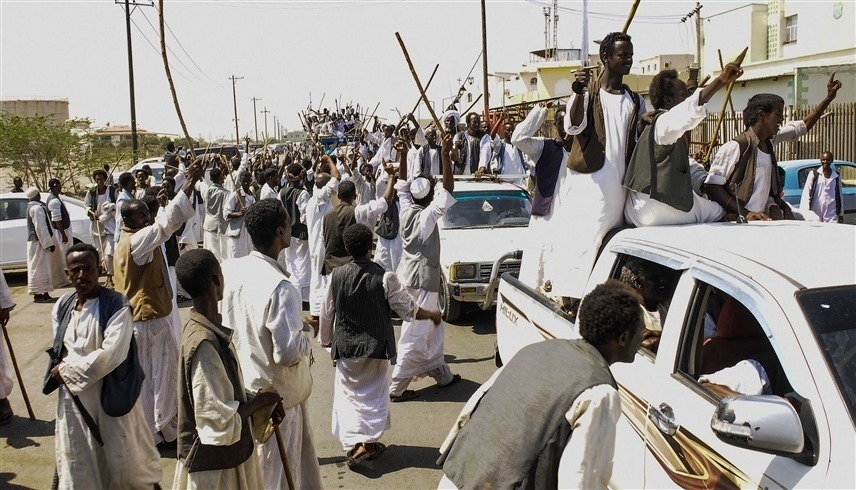
For its part, forces close to the Beja Council, such as elements of the Shaybah Dirar movement, expressed their willingness to join the ranks of the army, at a time when it was reported that the leader of the Bashir regime, Ahmed Haroun, had held several meetings in the eastern states, with the aim of mobilizing 15,000 individuals from each state to join the ranks of the army in Capital.
With increasing indications of the tendency of the eastern tribes close to the army to deepen their involvement in the military conflict, a number of other tribes feared the repercussions that may result from these developments on the situation in eastern Sudan, which may include strengthening the weight of the tribes that support the army militarily, and increasing their desire to control Wealth and power in the region.
In this context, a number of tribes – some of which had previous disagreements with the Beja components – entered the conflict between the army and the Rapid Support, and formed the nucleus of a broad tribal political alliance opposed to a military solution to the conflict, and announced on August 7, 2023 a political initiative aimed at settling the crisis between The Army and Rapid Support called it the “People of the East Initiative.”
The list of signatories to the initiative included nine principals and civil leaders, including representatives of the Beni Amer tribe, which is considered politically close to the movements of the East Path under the Juba Agreement, as previously mentioned. The statement was also signed by representatives of other tribes, such as the Bisharin, Al-Jamilab, Al-Habab, and Al-Barqo Al-Sulaihab. It is noteworthy that the Al-Jamilab tribe enjoys an influential relative weight in Kassala State, and is led by Sheikh Suleiman Beitai, one of the most prominent Islamic clerics in the region, who also enjoys good relations with the state of Eritrea, which borders the state. In general, most of these tribes have refrained from providing any form of support to the Sudanese army since the beginning of the conflict.
In a move that appears to have come from the desire of the parties to the initiative to avoid joining the climate of polarization in Sudan, due to the negative repercussions that may affect the relationship between the tribes of the Eastern Region, the initiative avoided addressing the legitimacy of the positions of the two parties to the conflict, and did not refer to the regional issues that concern the region, and instead proposed This outlines broad outlines for resolving the crisis, calling for the conjunction of the process of stopping the war and establishing a civilian authority to manage the transitional period, while developing a road map for the reconstruction of Sudan, preparing for a comprehensive national dialogue conference, and building a single national army.
The risks of this scenario are high because it may lead to tribal clashes, and perhaps a civil war in the region, especially since the environment of the East is prepared for this as a result of the tribes’ widespread carrying of weapons, in addition to their sharing a legacy of bloody confrontations. This scenario may lead to a prolongation of the conflict in Sudan in general, which will have a negative impact on the security of the Red Sea, and enhance the possibilities for regional and international powers to intervene militarily to secure shipping traffic. Although the risks of this scenario represent the most significant brake on its realization, it is considered likely if military losses worsen. For the army outside the east of the country.
Beja tribes
The Beja tribes are among the oldest tribes in Sudan, and are said to have been in the region for 5,000 years. They include main components: the Hadandawa, Beni Amer, Halanga, Bisharin, Ashraf, Artiqa, Shayyab, Ababda, Kamilab, and Malhitanknab. They are also considered the Hadandawa ethnicity, which is led by the Nazir and means The leader of the Muhammad al-Amin Turk tribe, the largest Beja tribe in terms of population.
The Beja tribes live between the coast of Kassala, the Red Sea, and the Nile River in Sudan, and along the north, passing through the Halayeb Triangle area. History remembers these tribes for their strong stance with the Emir of the East, Othman Digna, whose resistance to the Mahdist revolution facilitated the liberation of Khartoum from English rule.
Over many years, the Beja suffered from political and development marginalization, and led fierce wars against the central government in Khartoum in the 1990s, between 1994 and 2006, and participated in the overthrow of Sudanese President Omar al-Bashir in 2019.
After that, these tribes supported the transitional government, until the signing of the Juba Agreement. As the Beja considered that those who signed the agreement on its behalf did not represent it, a wave of protests began, which escalated with the closure of the port, and the Beja declared control over the backbone of trade in Sudan.
The importance of the Beja tribes
Beja and its region are now seen as a factor influencing the future and stability of Sudan, as the closure of the ports, in conjunction with the closure of the streets leading from the eastern Sudan region to the rest of the country, and the capital, Khartoum, threatens the national security of Sudan.
Observers believe that eastern Sudan is the region that controls the state’s movement with the world on the economic and commercial levels, as Sudan imports 70% of its needs through the port of Port Sudan, and the Bashayer port, which is also closed, affects the stability of the state of South Sudan, as it is an outlet for exporting its oil. It is feared Observers believe that the clashes between the Beja and the army will lead to the secession of eastern Sudan, like the south, or its transformation into another Darfur, amid talk of external parties fueling the conflict, and the demands taking on ethnic, tribal and regional dimensions, which may fuel a widespread civil war, and the Beja constitute about 10% of the population. Sudan has a population of 45 million, according to the last official census in 2008.
The Beja’s position on the conflicting parties in Sudan
About a month ago, the head of the Supreme Council of Beja Tribes in Eastern Sudan, Muhammad Al-Amin Turk, denied the Rapid Support Forces’ talk of a harbinger of civil war in the east of the country by arming some tribes. Turk said at the time: “The army did not arm anyone in eastern Sudan, and we did not discuss the matter.” Arming the tribes.
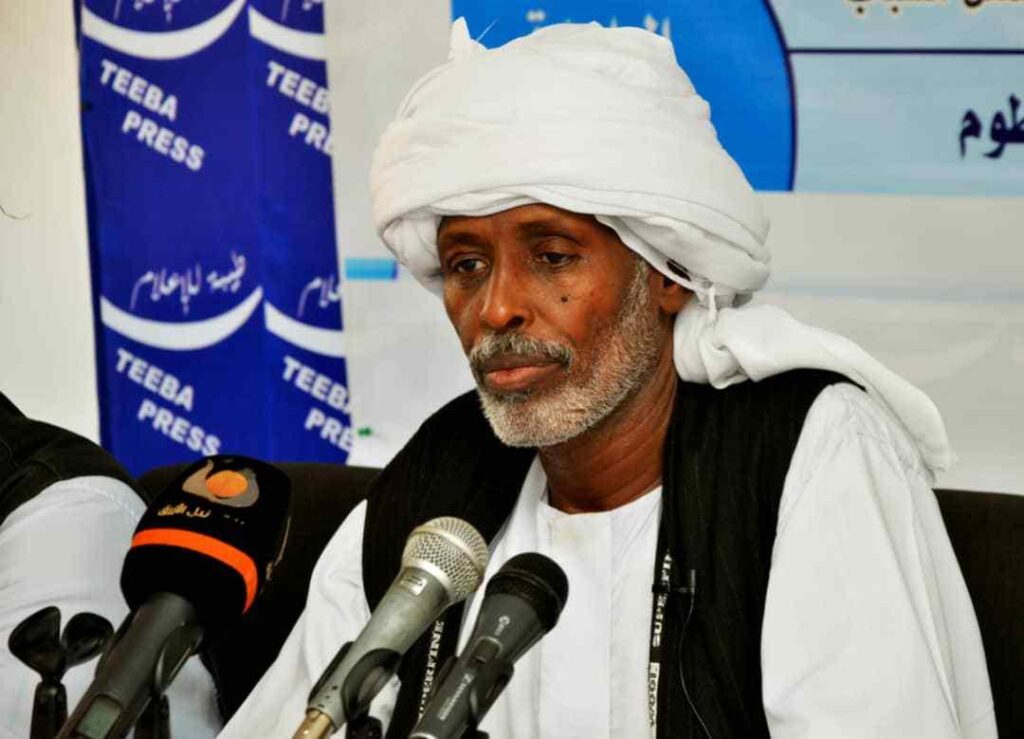
In response to accusations against him and the Supreme Council of Beja Glasses of being loyal to the army and the former regime, Turk said: “We are not remnants and we are not mercenaries, but we defend our rights to take them from the remnants who roam abroad to rule the people.”
Turk added, “Even if the war had not broken out in Khartoum, it would have broken out in eastern Sudan, because the people of eastern Sudan were fighting against this junta that is strengthened by colonialism and wants to rule rightly and unjustly.”
“Taqaddum” adheres to the “Safe East” strategy
In addition, the Eastern Sudan Civil Forces Alliance announced consultations with allies from the components of the Civilian Democratic Forces Coordination (Taqaddum), regarding the recent developments and the entry of the “Rapid Support” forces into the city of Wad Madani.
Coalition spokesman Saleh Ammar called on the armed forces and the Rapid Support Forces to address the citizens in the areas under their control, especially the states of Al-Jazeera and Darfur, that they will provide them with security and all the rights that guarantee them to live in dignity, and a practical commitment to implementing it, in order to stop the waves of displacement and stop violations on ethnic grounds.
He revealed communication with the regional and international communities to take urgent steps to protect civilians, provide humanitarian aid, and punish all parties involved in violations and obstructing the arrival of aid. He pointed to the start of a new political process that brings with it the experience of the Jeddah Platform, and puts all security and political issues in one package that addresses the concerns and interests of everyone. The parties, including warring parties and civilians, begin with a declaration of principles that defines the framework for the solution.
Ammar urged the people of eastern Sudan to open their homes and harness their capabilities to receive the displaced and provide for their humanitarian needs, which is what the people of the East have been known for throughout their history.
It is worth noting that the eastern Sudan region will not be immune from the battles that began in Khartoum and then moved to Darfur and Kordofan, which means that all of Sudan is exposed to the spread of war throughout its territory, an alarm bell alerting to what could happen in this region during the coming period, which is witnessing measures Tight security, especially a curfew and a ban on citizens’ gatherings in some cities in the East, while the security services carried out widespread arrests of a number of civilians, as a form of imposing control.
Fears are increasing that the fighting will expand to other states, and observers do not rule out that the fighting will spread to any of these states, in light of the political horizon being blocked for a peaceful solution to the crisis, despite the efforts of both the Jeddah Platform in Saudi Arabia and the East African Intergovernmental Authority (IGAD).

